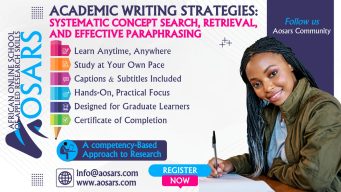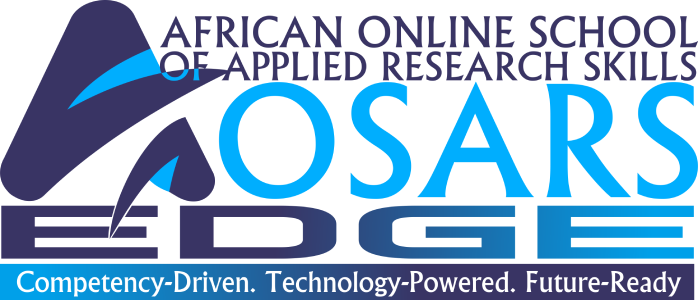
Recent Posts
Products
-
 A Complete Guide to Sourcing Current and Quality Reference Materials (Journal Articles, Theses, EBooks, Grey Literature and RIS) for PhD Level Thesis with Ethical AI Use
€29.75
A Complete Guide to Sourcing Current and Quality Reference Materials (Journal Articles, Theses, EBooks, Grey Literature and RIS) for PhD Level Thesis with Ethical AI Use
€29.75
-
 All 9 Modules (2 Installments)
€124.53
All 9 Modules (2 Installments)
€124.53
-
 All 9 Modules (Single Installment)
€175.95
All 9 Modules (Single Installment)
€175.95
-
 Academic Writing Strategies: Systematic Concept Search, Retrieval, and Effective Paraphrasing
€42.50
Academic Writing Strategies: Systematic Concept Search, Retrieval, and Effective Paraphrasing
€42.50
-
 Academic Writing Strategies: Systematic Concept Search, Retrieval, and Effective Paraphrasing
€42.50
Academic Writing Strategies: Systematic Concept Search, Retrieval, and Effective Paraphrasing
€42.50
Date
- May 01 2025
- Expired!
Time
- 7:30 pm - 9:00 pm
AOSARS Training Session: Organizing Research Materials for Thesis Writing
The African Online School of Applied Research Skills (AOSARS) will, on Thursday, May 1, 2025, at 7:30 PM, conduct a training session for continuing Master’s students, focusing on advanced techniques for preparing research materials to support thesis writing. This session builds on prior training, where students mastered the customization of Microsoft Word to streamline thesis formatting, including automating styles, numbering, cross-referencing, and document navigation. The upcoming module shifts focus to organizing and refining mass-downloaded research reference materials, equipping students with essential skills to manage resources effectively and lay a robust foundation for their thesis work.
Key Skills to Be Learned
1. Systematic Arrangement of Research Materials
Students will learn to organize diverse research resources—grey literature, theses, and journal articles—into a coherent structure. The session will cover:
Categorization Strategies: Grouping materials by thematic relevance, methodological approaches, or chronological order using digital tools like Zotero, Mendeley, or spreadsheets.
Framework Development: Creating a logical system for easy retrieval, aligning resources with the thesis outline (e.g., sorting journal articles by key themes or grey literature by publication source).
2. Cleaning the Dataset
To enhance dataset quality, students will be trained to:
Remove Duplicates: Identify and eliminate redundant entries by comparing titles, authors, DOIs, or publication details, using software features or manual checks.
Filter Irrelevant Items: Exclude materials that do not meet research criteria, such as outdated publications or those with insufficient keyword density, ensuring a focused and manageable dataset.
3. Sifting Through Content
Students will develop techniques to efficiently extract pertinent information, including:
Keyword Searches: Using advanced search functions in reference management tools or PDF readers to locate high-density keyword clusters or specific concepts.
Rapid Assessment: Skimming abstracts, introductions, and conclusions to evaluate relevance, and extracting critical data points like statistical results, theoretical frameworks, or case studies.
Background and Context
In previous sessions, AOSARS trained students to curate research materials based on multiple criteria: relevance, period of publication, keyword location, and keyword density. This enabled them to build a targeted collection of references aligned with their research objectives. The May 1 session advances this foundation by teaching students to transform raw collections into streamlined, high-quality datasets. By mastering these skills, students will minimize clutter, enhance resource usability, and prepare effectively for the writing phase.
Next Steps
The training will prepare students for subsequent sessions, which will focus on the writing process—structuring arguments, synthesizing findings, and presenting research coherently. AOSARS’s comprehensive approach ensures that students not only collect and organize relevant materials but also develop the technical and analytical skills needed to produce a polished thesis, bridging the gap between preparation and scholarly output.






